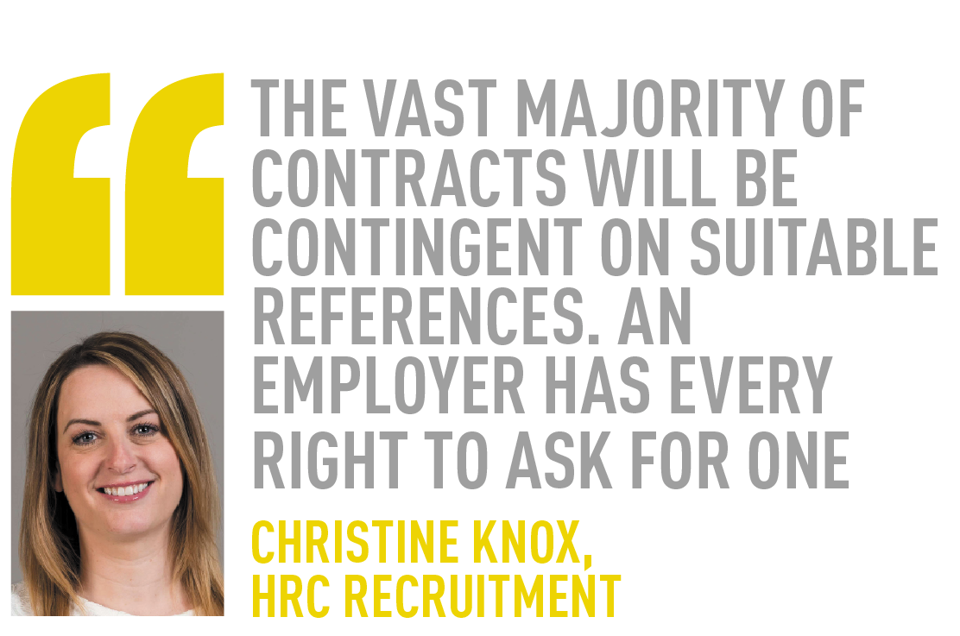The importance of carrying out simple reference checks when hiring new staff in roles of responsibility has been highlighted by a recent court case.
It could serve as a warning to major companies that do not check references due to the belief that fear of potential libel proceedings puts off previous employers from providing more than a brief confirmation of a candidate’s period of employment and role.
Last year, Oswald Wong was jailed for fraud after getting a job at a medical research centre in Merthyr Tydfil, using false references. The employer became suspicious when he was asked to provide proof of being registered as a doctor with the General Medical Council before starting the job, and he couldn’t.
Put verification processes in place
Jasmine Chadha, an employment solicitor at Royds Withy King, said: “References are a very important aspect of the recruitment process, giving information to a potential employer to help them decide whether a job applicant is suitable.
“References are usually obtained by a direct request from the potential new employer to a previous employer, but unscrupulous employees may also seek to provide references themselves that contain false information.
“It is essential for recruiters to have robust reference verification processes in place and ensure that they always verify a reference with the actual employer on whose behalf that reference is provided. This is especially the case when
candidates are given responsibility for obtaining or providing references themselves and may take that opportunity to embellish or entirely doctor references.”
Chadha said the dishonesty of providing a false reference means an employer would almost always have a case for dismissal for gross misconduct.
But she warned of the potential damage to the reputation of any recruiter that has, even inadvertently, placed a candidate on the basis of a false reference due to a failure to carry out checks.
Christine Knox, associate director of HRC Recruitment, said many employers don’t expend too much energy on chasing up references to ensure they are legitimate. In their place, they have made disclosure, credit and criminal background checks the norm in industries that involve handling money and payment details.
“Yet, as superficial as dates of employment might be, a reference can still be important. Candidates have been known to fill gaps in their employment history by extending their stay at an organisation. In some cases, they may miss out some ex-employers altogether,” she said.
“The vast majority of contracts of employment will be contingent on suitable references. An employer has every right to ask for one.”
Do you have to provide a reference?
Previous employers are not required by law to provide references. However, if they do, the law requires them to be “true, fair and accurate”. Failure to follow the law may leave the referee open to libel proceedings.
Employers must also be consistent about whether they decide to provide a reference or not. Doing so for some and not for others could be viewed as discriminatory under the Equality Act 2010, which provides protection to former employees from post-employment discrimination and harassment. In particular, this is aimed at protecting former employees who have taken a recent employer to tribunal for discrimination, from receiving an unfair reference. Under GDPR rules, a former employee can request a copy of a reference provided about them and the former employer must oblige.

















formula1 - 26/10/2018 17:17
I question the accuracy of this article. The penultimate and last paragraph further demonstrate why companies are now increasingly only supplying factual references which merely confirm start and end dates, due to the threat of litigation. References will become a thing of the past in the foreseeable future.